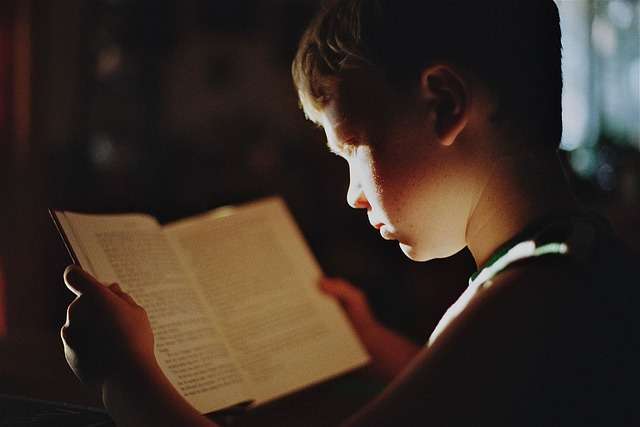
As a mother of a daughter with severe obsessive-compulsive disorder (OCD), I know firsthand the difficulties and frustrations that parents face when their kids are diagnosed with this cruel condition. As a clinician who specializes in OCD, I know that, while this disorder can seem intractable, it is highly treatable, and we now have better strategies than ever for managing it. Treatment modalities such as acceptance and commitment therapy (ACT), cognitive behavioral therapy (CBT), and exposure and response prevention therapy (ERP) are effective. In my own practice, I incorporate internal family systems therapy (IFS) and have seen many clients benefit from it. When my daughter was 8 years old, she began exhibiting symptoms, such as checking behaviors and mini-rituals. Today, fourteen years later, with treatment and family support, her symptoms are vastly reduced, she is skilled at managing them when they arise, and she enjoys a full and happy life.
OCD affects 1-3 percent of children and adolescents, and its onset is generally between 7-12 or between the late teen years and early adulthood. While causes are not totally clear, the latest science suggests a strong genetic component. Some research points to Pediatric Acute-onset Neuropsychiatric Syndrome as a potential cause or trigger. Other studies suggest stress and trauma can also play a role. OCD is marked by persistent, unwanted, and intrusive thoughts (obsessions) and repetitive or ritualistic behaviors (compulsions) aimed at relieving the fear and anxiety prompted by the obsessions.
Recognizing OCD Symptoms in Your Child
So, how do you know if your child is struggling with OCD, and what should you do if you suspect he or she is? Some of the most common signs are:
- Excessive handwashing, showering, or grooming that goes far beyond normal hygiene;
- Repeatedly checking locks, appliances, or homework assignments;
- Arranging items in specific patterns or becoming distressed when things are “out of place.”;
- Avoiding certain rooms, objects, or situations without a clear reason;
- Taking unusually long to complete routine tasks like getting dressed or doing homework;
- Asking the same questions repeatedly, seeking constant reassurance;
- Sudden changes in eating habits or food avoidance;
- Increased irritability, especially when routines are disrupted;
- Withdrawal from friends or activities they previously enjoyed;
- Expressing fears that seem disproportionate to the situation;
- Extreme distress over “contamination” or germs;
- Perfectionism that interferes with completing tasks.
Finding Professional Help
If you suspect your child is suffering from OCD, it is important to find a mental health professional who is qualified and experienced in treating pediatric OCD. Here are some things to consider:
- Seek therapists specifically trained in treating pediatric OCD;
- Ask about credentials from the International OCD Foundation’s Behavior Therapy Training Institute (BTTI);
- Inquire about their experience with exposure and response prevention (ERP) therapy;
- Consider therapists trained in additional modalities like ACT, I-CBT, or IFS if they also have experience with evidence-based methods for OCD;
- Ask about their approach to family involvement—effective OCD treatment typically includes parent guidance;
- Ensure they can provide concrete homework assignments and between-session support;
- Look for therapists who can explain treatment goals clearly and are willing to discuss realistic timelines;
- Consider whether they offer intensive outpatient programs if your child needs more support;
- Verify they accept your insurance or discuss payment options upfront.
Here are some red flags that indicate a therapist might not be the best fit:
- Therapists who do supportive talk therapy or focus primarily on exploring “root causes;”
- Those who discourage exposure work or promise unproven “quick fixes;”
- Practitioners who don’t involve parents in the treatment process;
- Anyone who suggests your child will simply “outgrow” OCD without intervention.
How Parents can Help
Parents have an important role to play in helping a child manage OCD, but it can be difficult to know how to respond and offer support. The following are some do’s and don’ts that I generally recommend to parents.
Do:
-
- Bring an open, curious mind and compassion to any interaction with your child about OCD.
- Acknowledge your child’s distress while expressing confidence in their ability to cope: “I know OCD is making you feel really upset right now, and I believe you can handle this.”
- Slow down when your child is triggered— trauma and triggered energy is fast, healing energy is slow.
- Notice what is happening inside yourself first before responding to your child’s OCD demands.
- Help your child understand that compulsive behaviors create temporary relief but make the problem worse over time.
Don’t:
- Accommodate OCD demands, even when it temporarily reduces your child’s distress (but don’t pull all accommodations away at once!).
-
- Provide repeated reassurances that feed the OCD cycle;
- Make family decisions based on avoiding your child’s OCD triggers;
- Participate in checking, cleaning, or other compulsive rituals;
- Dismiss their concerns as bad habits or by saying they are “silly;”
- Urge them to simply “stop” or “try harder.”
There is no doubt that OCD is a troubling condition that can make you and your child feel frustrated and overwhelmed. But it is manageable, and I’ve seen personally and professionally how—with the right help and support—children and families need not suffer endlessly. There is hope and help.














